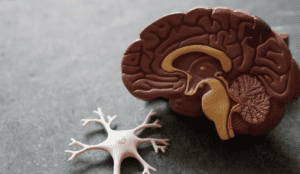- – Overtraining can be harmful because our bodies are not able to differentiate between general stress and performance stress/anxiety
- – Ways to combat this include focusing on recovery, intuitively listening to your body signs, being realistic about your goals, and being kind to yourself!
Whether you’re trying to beat a record, do better than yesterday, or become more flexible than you were last week, reaching your peak performance in sports or any form of physical activity is a common goal for many of us. But amidst all this ambition, we can end up feeling quite stressed and anxious to reach that goal. And if we don’t make it one day, we end up feeling even worse about ourselves. Although stress in small quantities can give you that boost of energy you need, consistent stress can actually do more harm than good.
What exactly does stress do? In a stressful situation, the amygdala (part of the brain that processes emotions) alerts the brain to activate the sympathetic nervous system – also known as the fight or flight response. This in turn triggers the release of adrenalin and noradrenaline that result in those physical changes of increased heart rate, dilated pupils, and constricted digestive processes. However, if this stress becomes chronic or constant over a long period of time, the body begins to feel long-term wear-and-tear effects such as the onset or progression of several diseases like depression, HIV/AIDs, Asthma, and more. How? Because the body continually begins to consume all our available resources. This also changes the way that we cope with stress – which can result in decreased exercise, binge-eating, and a reduction in the quality of our sleep. Evidently, these effects are all counterproductive to reaching our peak potential.
Another key area these effects influence is the recovery rate; while working out or competing in sports, it’s normal to experience some physical injuries. However, bouncing back and healing quickly is important in order to return to that physical peak performance. Additionally, stress can affect your recovery even after normal workouts, which can impact future performance and long term success. Being in a constant state of stress prevents that from happening. Since our body begins to conserve our resources to prepare itself to face a threat, it compromises all other physical processes, in particular the immune system. An inadequate immune system slows down wound healing, which reduces your recovery rate.
With this in mind, it’s vital to be able to manage your stress levels to be able to reach your peak potential. Given that stress is still a necessity for life, there’s a delicate balance to strive for. Focusing on trying to recover from stress instead of drowning in more can change the way our bodies respond to physical strain from athletics and exercise. Another approach is to minimize external stressors that can also impact performance. Lastly, try not to put extra pressure on yourself – be realistic about your goals and compassionate with yourself when stressed if you don’t immediately get there.This sort of response will minimize the stress you take on and prevent it from impairing your overall performance.






